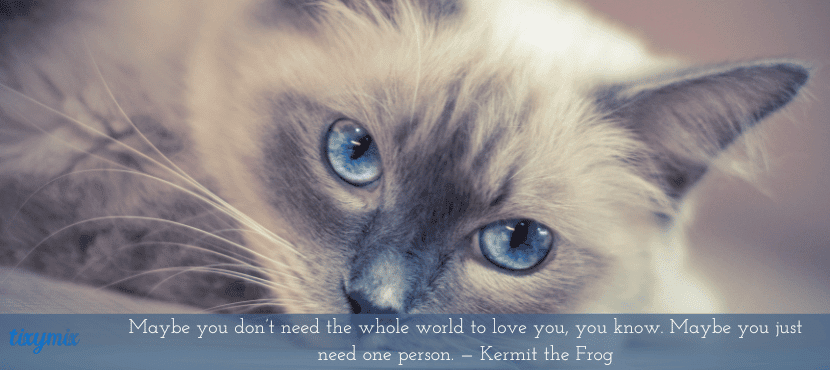Personal Growth and Efficiency, Plushies, Teddy Bears
Why Adorable Plush Toys Help Adults Feel Calmer
Table of Contents
Cuteness Overload: How Furry Friends Boost Your Brain!
Who can resist the charm of a cute and fluffy companion? Whether it’s a cuddly cat, a playful pup, or an adorable stuffed animal, these furry (and faux-furry) friends have a way of stealing our hearts and bringing smiles to our faces. But did you know they can also boost your brain? From reducing stress and anxiety to increasing motivation and emotional stability, both pets and plushies offer powerful mental health benefits. In fact, plush toys help adults feel calmer by providing soothing tactile input and emotional comfort. In this article, we’ll explore why these comforting companions are more than just cute — they’re tools for emotional wellness.
Fluffy Therapy: How Pets and Plushies Help Your Mental Health
There’s a reason why therapy dogs and emotional support animals are becoming more and more common. Pets have a unique ability to provide comfort and support to people facing stress, trauma, or loneliness. Scientific research has shown that petting an animal can lower cortisol (the stress hormone) while increasing oxytocin and serotonin, chemicals that contribute to feelings of happiness and bonding.
But what if you don’t have the time, space, or budget for a real pet? That’s where emotional support plushies come in. For many, cute plush toys for adults serve as an accessible and practical alternative to real animals. Hugging an adorable stuffed animal for stress relief can trigger a similar calming response in the body — helping regulate breathing, slow heart rate, and promote emotional grounding. These aren’t just toys; they’re therapeutic tools, offering softness and safety on demand.
This is especially relevant for people living in apartments with pet restrictions, those with allergies, or anyone navigating a fast-paced lifestyle. A plushie doesn’t need to be fed or walked, but it can still provide immense comfort — acting as a quiet anchor in a noisy world.
The Science Behind Cuteness and Comfort
Ever felt your brain light up just by looking at a soft, wide-eyed plush toy? That’s not your imagination. Cuteness triggers a powerful neurological response. When we see something cute, our brain releases dopamine — the neurotransmitter associated with pleasure and reward. This explains why so many people instinctively smile or feel joy when encountering nostalgic comfort toys for grown-ups or plushies with oversized eyes and pastel colors.
This reaction isn’t just fleeting — studies show that engaging with cute objects can also improve attention, focus, and memory. Looking at or handling a plush toy activates the brain’s reward center, creating a sense of calm and focus. This is particularly useful for students, remote workers, or anyone needing a low-effort way to lift their mood during the day.
In a society that often prioritizes performance over peace, plushies are a quiet form of resistance. They remind us it’s okay to pause, breathe, and enjoy the moment — without apology.
Plushies as Companions: More Than Just Decor
Today’s plushies aren’t just for kids. Adults are embracing them as companions, décor, and therapeutic tools. Whether nestled on a couch, perched on a work desk, or tucked beside a pillow, these soft figures offer emotional consistency — something we all crave in an unpredictable world.
The Tixymix plushie collection was created with this exact need in mind. From charming bunny plushies to oversized cuddle companions, these toys are designed to bring joy and calm to people of all ages. They’re not just cute — they’re curated for emotional impact.
And let’s not forget their potential as presents. Gift ideas for people who love cute things often include practical items or tech gadgets, but few things rival the emotional resonance of a well-chosen plushie. Whether it’s a birthday, care package, or “just because,” plush toys are gifts that speak the language of comfort.
For the Overwhelmed: A Soothing Alternative
Not everyone has the ability to care for a pet, and that’s okay. The demands of work, family, or chronic stress can make pet ownership unfeasible. That’s why cute plush toys for adults are gaining traction. They require no maintenance yet provide the same emotional support in moments when you need to decompress, self-soothe, or simply hold onto something warm and familiar.
For those navigating anxiety, trauma, or even burnout, plushies offer more than nostalgia — they offer survival. They’re there when others can’t be. They hold space when words fail. They remind us, in their soft and quiet way, that it’s okay to need something gentle.
Final Thoughts: The Quiet Power of Comfort
In a world inundated with noise, speed, and relentless demands for performance, the quiet comfort of a plush toy is, in many ways, a radical act. Not radical in volume or spectacle — but in its gentle refusal to harden. To hold a plush toy close is not to escape life, but to insist on softness within it — to carve out emotional space in a culture that too often rewards detachment, cynicism, and exhaustion.
Plush toys remind us that comfort is not weakness. It’s not childish, lazy, or naive. In fact, it might be one of the few truly human things we’re still allowed to claim without explanation. A plushie doesn’t demand credentials. It doesn’t care about your productivity, your inbox, your deadlines. It just sits there — unmoved, available, soft — and in doing so, offers a kind of emotional hospitality that’s becoming increasingly rare.
And it’s not just about nostalgia or memory — it’s about emotional regulation and daily coping. For many, emotional support plushies are a lifeline, a way to regulate emotion when nothing else works. They are silent companions through depressive spirals, anxiety attacks, long hospital nights, or the dull ache of loneliness. They become the embodiment of what therapists, friends, and even family sometimes fail to provide: unconditional, nonjudgmental presence.
So the next time you see someone with a plushie tucked into their travel bag, resting beside them on the couch, or propped like a talisman on their desk — don’t roll your eyes. Don’t assume it’s kitsch or quirk or regression. It might be their way of surviving. Of staying soft in a world that asks them to be steel. Of preserving a sense of self that doesn’t have to be sharp-edged to be strong.
Because in a culture obsessed with doing more, being more, showing more, a plushie quietly says: “You are already enough.”
And maybe that’s the real comfort — not just the softness we hold in our hands, but the gentleness we remember to hold for ourselves. Whether you’re collecting from the Tixymix or simply rediscovering your childhood favorite, remember: there’s strength in softness.


